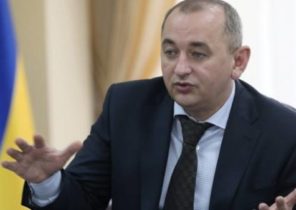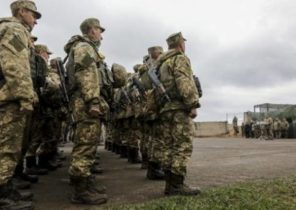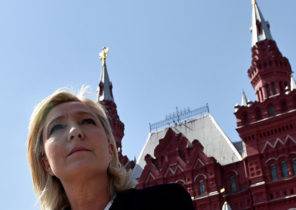
Hamburg — no One was surprised when, after made on Thursday statements by President Obama about the expulsion of Russian diplomats in response to the Kremlin’s attempts to manipulate elections in 2016 in Moscow just shrugged. It seems that in the Kremlin decided to calmly wait until January 20, Mr. Obama will not change in the White house fan of Russia, but the state Department is not headed by her old friend.
However, the change of administration, there is a downside — President Vladimir Putin will now lose their favorite enemy. In the near future, the United States is unlikely to be Russia’s main enemy. Who is best suited to the role of the new bogey? Right, Angela Merkel!
The German Chancellor is a perfect target. In Germany, following the fall elections. As well as in Europe strengthen the position of politicians sympathetic to Moscow, Merkel will probably run for a fourth term as the only European leader willing to face re-gained the confidence of Russia.
After the annexation of Crimea in 2014, Ms. Merkel consistently other insisted, to punish Russia. The following year, she took in Germany a million refugees and achieved the same from other European countries — and this, from the point of view of Russian ethno-nationalists, eroding European culture. In addition, she continues to believe in a single, cohesive European Union, which should serve as a bulwark of liberal values, and (at least implied) political and economic Bastion for protection from Russia.
It seems that Russia plans to do in 2017, with Ms. Merkel and her allies like she did with Hillary Clinton and the other us Democrats in 2016.
In the end, the same hackers — known on the Internet as Fancy Bear or Sofacy Group, who broke into the computers of the Democratic party, attacked last year, the network of the German Parliament. They are also accused of stealing documents from some members of Parliament. Each new detail about how Russia intervened in the American elections, forcing Germany to anticipate the most difficult, dirty and exhausting campaign in modern German history.
This feeling might be useful for us. We know a lot about the technical possibilities and methods of Russia and — more importantly — we all have a better understanding of what Russians come and ideologically, than they are guided, organizing attacks.
Here we can be useful the lessons of the cold war. The current activities of Russia is very similar to the digital version of what in Germany until 1989 was called Zersetzung. This word is difficult to translate, but it is a political analogue of the processes occurring under the influence of acids on organic matter — that is, dissolution and disintegration.
Zersetzung is questioning the fundamental norms and institutions of the Western liberal order, distorts and discreditied the objectives of the European Union, NATO, and free-market economy, but also undermines the credibility of free press and free elections. This effect is achieved through slander, spreading lies and false news and creating a “gray zone” — the zone of doubt, where the facts are difficult to survive.
All that we have seen before. Such methods were used by KGB and East German Stasi. They waged psychological warfare, spread rumors, bribed politicians, and then denounced them as criminals. Security services acted thus as in domestic politics, against dissidents, and abroad, against the Western enemies. But Putin and his former colleagues in the KGB should understand that we are now better than ever before, to understand their dirty tricks and understand how they adapted the tactics of Zersetzung to the Internet.
The government, of course, is to take the necessary measures, but journalists NGOs are also not allowed to remain idle. We should put pressure on companies such as Facebook and Twitter, and get them to actively fight with fake news. We also need to expose Russian propaganda wherever we encounter him.
It is also important to understand what is behind these attacks, the ideology. In September, the newspaper Die Zeit, in which I work, together with the TV channel ZDF detail exposed carefully designed by the Moscow campaign of disinformation. We got access to about 10,000 e-mails that clearly showed how the ideologues close to the Putin administration, advised the Pro-Russian rebel government in Eastern Ukraine.
Among the letters was a document with “Temnik”, which was to follow in support of the rebels edition — at the expense of facts and realities, if it was necessary. “Russia today is not Russia of the 1990s. determined She is working to restore the power of the Soviet Union. She is now on a par with the West, it said. — There is a global diplomatic war. The West of it, too, is suffering, and it is unclear who will win it”.
Undoubtedly, similar orders were given and the armies of hackers who attacked the Democratic party, and now going to attack Germany.
Who eventually loses, it is quite clear now. Mr. Putin and working on his irresponsible liars should understand that the only result of their lies will be another lost generation of Russians who could bring the country more good if they had the opportunity to deal with honest and constructive intellectual challenges. A government that denigrates the world, so that Russia again felt great, doomed to fail — as has happened.
Jochen Bittner, editor of the political Department of the weekly Die Zeit and a freelance columnist for The New York Times.







